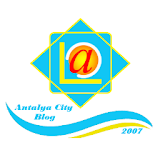Europe is one of the world's seven continents where approximately 740 million people living in. It is the world's second-smallest continent by surface area, covering about 10,180,000 square kilometres (3,930,000 sq mi) or 2% of the Earth's surface and about 6.8% of its land area. Everything in this small continent was not nearly as positive and stable, because there was seen at least one major war between nations of Europe in every hundred years.
Before the establishment of the European Union, it is known that the nations of Europe fought constantly with each other. In fact, some of the largest and bloodiest wars in the history of the world has existed on this continent such as World War I, World War II, Thirty Years' War, Napoleonic Wars, and French Wars of Religion.
In addition, France and Germany fought three times between 1870 and 1945. With the end of the Second World War in Europe, millions of people have died, and the states of Europe had collapsed economically.
Finally people understood that the wars between the European nations always damaging to Europe.
At this point, the idea of the unity of the European states began to emerge.
In the 17th century, Immanuel Kant, Saint Simon, Wiliam Penny, Maximillian Jully and Victor Hugo that make up the infrastructure of this idea, and believes that one day the European union would be realized.
In fact, in 1856, by the Treaty of Paris was signed by five European countries, an alliance which is called as the Concert of Europe was founded.
The term of "United States of Europe" which was invented during the 19th century, and frequently used by the Austrian statesman Coudenhove-Kalergi, and French politician Briand in the 20th century.
Of course, all of these efforts collapsed with the rise of fascism especially in Germany and Italy in the 1930s. After the World War II, European people united around the idea of "Never Again War".
In addition to the social and economic reasons, another factor for the acceleration of the process of formation of the European Union has been the aggressive policy of the Soviet Union.
The term "United States of Europe" was used also by Winston Churchill in his speech delivered on 19 September 1946 at the University of Zürich, Switzerland. In this speech given after the end of the Second World War, Churchill concluded that:
| "We must build a kind of United States of Europe. In this way only will hundreds of millions of toilers be able to regain the simple joys and hopes which make life worth living". |
In 1949, the Council of Europe was founded . It is an international organisation promoting co-operation between all countries of Europe in the areas of legal standards, human rights, democratic development, the rule of law and cultural co-operation. It has 47 member states with some 800 million citizens.
 |
| Jean Monnet Father of Europe |
 |
| Konrad Adenauer & Robert Schuman |
"Through the consolidation of basic production and the institution of a new High Authority, whose decisions will bind France, Germany and the other countries that join, this proposal represents the first concrete step towards a European federation, imperative for the preservation of peace."
 |
| European Coal and Steel Community |
When Germany agreed to join the European Coal and Steel Community
according to the Schuman Plan in 1951, the ongoing dismantling of
German industry was halted and some of the restrictions on German
industrial output were lifted. West Germany joined the ECSC, alongside Italy, Belgium, Luxembourg and the Netherlands, while Britain refused, on grounds of national sovereignty. In 1952, Jean Monnet became the first president of the High Authority
and with the opening of the common market for coal under the ECSC in
1953, the last civilian production limitations placed on German industry
were lifted, and the role of the IAR was taken over by the ECSC.
 |
| European Coal & Steel Community Flag |
The ECSC was joined by two other similar communities in 1957 with Treaty of Rome, EEC and EURATOM, with whom it shared its membership and some institutions. In 1967 all its institutions were merged with that of the European Economic Community (EEC, which later became part of the European Union), but it retained its own independent identity.
The Merger Treaty (1967) (or Brussels Treaty) was a European treaty which combined the executive bodies of the European Coal and Steel Community (ECSC), European Atomic Energy Community (Euratom) and the European Economic Community (EEC) into a single institutional structure.
On 1 July 1968, six countries – Belgium, France, Germany, Italy,
Luxembourg and Holland – abolished the last duties on goods movements
among themselves, creating a European customs union. Besides doing away with trade
barriers between member countries of what has become the European
Union, the customs union established a common tariff on all goods
entering these countries.
 |
| Charles de Gaulle |
French president Charles de Gaulle strongly resisted, arguing that the UK was closer to American policies than European ones, and would therefore attempt to "sabotage" the community. Consequently,
France vetoed the UK's first attempt at achieving membership in 1963, and in 1967.
Of course, the expansion of the 1970s and 1980s, was important steps for the European Union. In 1973, the Communities enlarged to include Denmark (including Greenland, which later left the Community in 1985), Ireland, and the United Kingdom. Norway had negotiated to join at the same time, but Norwegian voters rejected membership in a referendum. In 1979, the first direct, democratic elections to the European Parliament were held. Greece joined in 1981; Portugal and Spain in 1986. In 1985, the Schengen Agreement
led the way toward the creation of open borders without passport
controls between most member states and some non-member states. In 1986, the European flag began to be used by the Community and the Single European Act was signed.
The Single European Act (SEA) was the first major revision of the 1957 Treaty of Rome. The Act set the European Community an objective of establishing a Single market by 31 December 1992, and codified European Political Cooperation, the forerunner of the European Union's Common Foreign and Security Policy. It was signed at Luxembourg on 17 February 1986, and at The Hague on 28 February 1986. It came into effect on 1 July 1987, under the Jacques Delors Commission.
The European Union was formally established when the Maastricht Treaty—whose main architects were Helmut Kohl and François Mitterrand. 1992-1993 The Maastricht Treaty (formally, the Treaty on European Union or TEU) was signed on 7 February 1992 by the members of the European Community in Maastricht, Netherlands. On 9–10 December 1991, the same city hosted the European Council which drafted the treaty. Upon its entry into force on 1 November 1993 during the Delors Commission, it created the European Union and led to the creation of the single European currency, the Euro. The Maastricht Treaty has been amended by the treaties of Amsterdam, Nice and Lisbon.
In 1995, Austria, Finland, and Sweden joined the EU. In 2002, Euro banknotes and coins replaced national currencies in 12 of the member states. Since then, the Eurozone has increased to encompass 17 countries. In 2004, the EU saw its biggest enlargement to date when Cyprus, the Czech Republic, Estonia, Hungary, Latvia, Lithuania, Malta, Poland, Slovakia, and Slovenia joined the Union.
On 1 January 2007, Romania and Bulgaria became EU members. In the same year Slovenia adopted the euro, followed in 2008 by Cyprus and Malta, by Slovakia in 2009, and by Estonia in 2011.
 |
On 1 December 2009, the Lisbon Treaty entered into force and reformed many aspects of the EU. In particular, it changed the legal structure of the European Union, merging the EU three pillars system into a single legal entity provisioned with a legal personality, created a permanent President of the European Council, the first of which was Herman Van Rompuy, and strengthened the High Representative, Catherine Ashton.
 |
| Herman Van Rompuy & Catherine Ashton |
The European Union received the 2012 Nobel Peace Prize for having "contributed to the advancement of peace and reconciliation, democracy, and human rights in Europe." On 1 July 2013, Croatia became the 28th EU member.
Although the monetary union has been shaken by the European sovereign-debt crisis since 2009 and Accession of Cyprus to continue the controversial, the European Union still has its own unique and unparalleled in the world. Thanks to the European Union, bloody wars ended in Europe today.





























